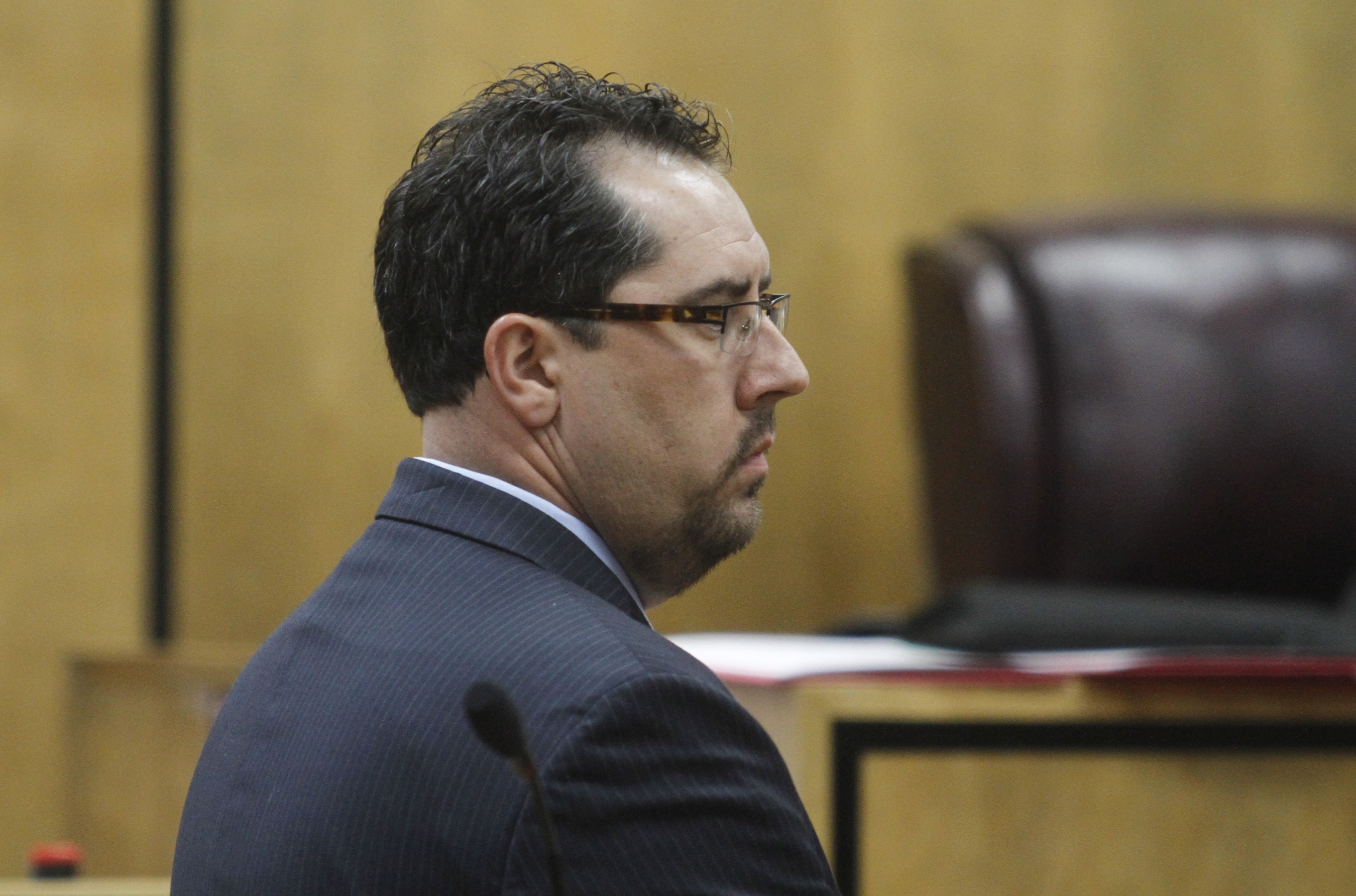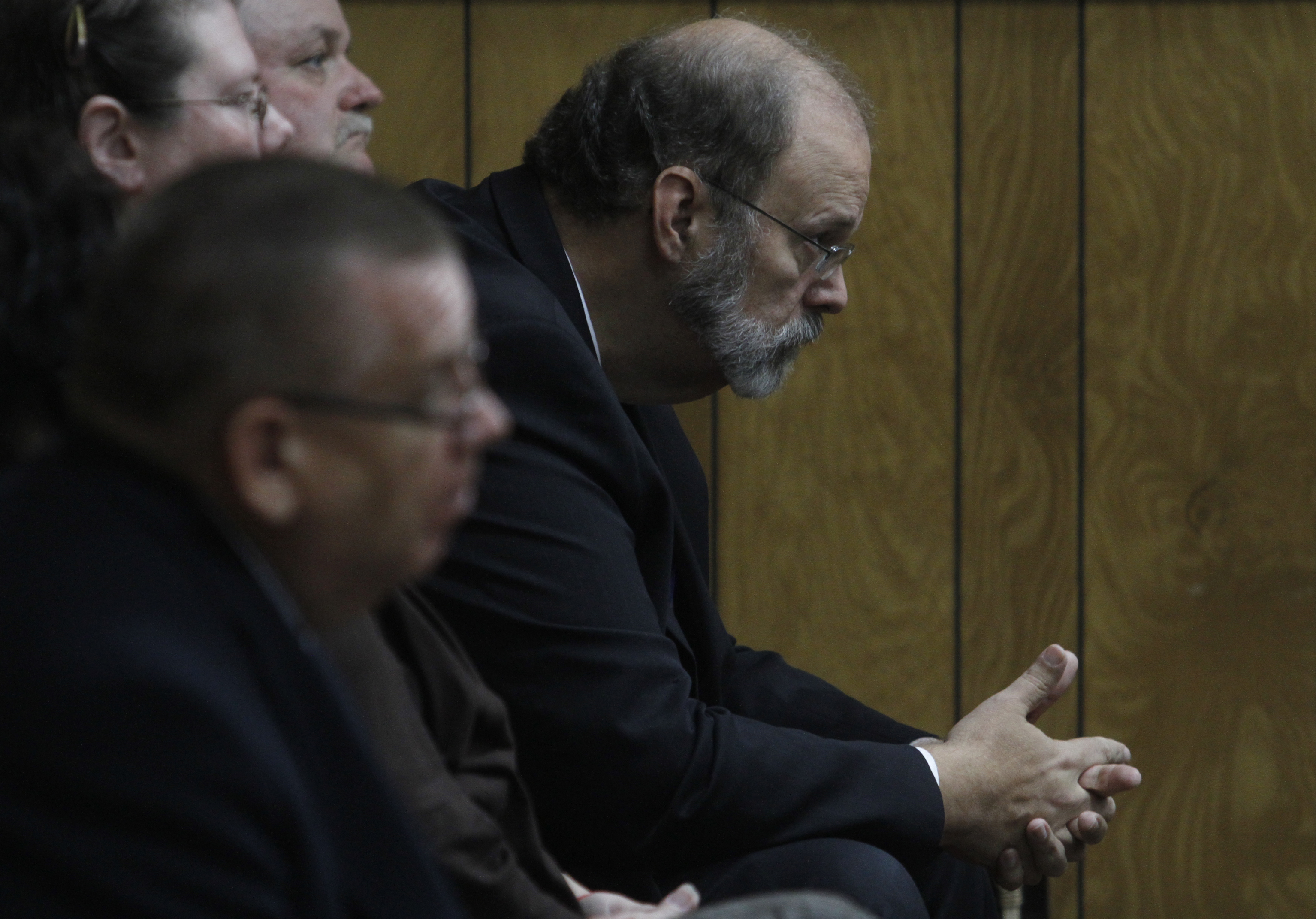
Before Steve Bebb was elected 10th Judicial District attorney general, he was a Criminal Court judge for 23 years. He campaigned for the DA position as a friend to law enforcement and had a lot of police support.
As district attorney, Bebb has appeared unwilling to charge police officers for behavior that would probably land civilians in jail, according to records and newspaper archives.
Among the cases the Times Free Press reviewed:
The Cleveland, Tenn., police chief and one of his top aides "gave false or misleading answers" in 2007 during sworn testimony in a federal lawsuit filed against the city and Cleveland police officer Chris Jacques, according to Bebb's own files.
In 2008, Bebb sent a memo to the Cleveland city manager, mayor and council members saying that Chief Wes Snyder and Lt. John Dailey spoke untruthfully or "disingenuously" in a lawsuit filed by Bradley resident Vivian Hardwick.
Hardwick's lawsuit claimed that Jacques came to her home, which was outside the city limits, on Feb. 1, 2006, to question her about a report that Hardwick's vehicle had struck a school crossing guard at George R. Stuart Elementary.
According to the lawsuit, Jacques came inside without a warrant, grabbed her and used a Taser on her. Then he cuffed her and dragged her, shoeless and coatless, to his patrol car.
Hardwick sued for assault and battery, excessive force and other charges. The lawsuit eventually was dismissed.
However, Bebb told the city leaders in the memo that Snyder and Dailey spoke untruthfully under oath about a "point system" used in the police department to ensure officers were working.
The TBI confirmed that it investigated allegations in 2007 against Snyder and Dailey and turned the case file over to Bebb.
Bebb's memo also listed a number of other allegations that Snyder ordered other officers to arrest or cite people to court on little or no grounds.
"Any time this occurs, the officer has to make oath to the facts that make up probable cause," he wrote.
"In these types of cases, the officer must either exaggerate the facts, commit perjury, or ... protect themselves by writing on the search document, 'I was ordered to do this.' At any rate, it forces them to violate the law and their oaths as police officers."
After citing those and other instance of apparent lawbreaking inside the Cleveland Police Department, Bebb wrote:
"Even though there are some prosecutable violations, I choose at this time not to seek prosecution, but to commend this to the City Manager and the City Commissioners for their consideration."
There is no indication that Bebb or city officials took any further action.
A state appeals court said Monroe County Detective Patrick Henry could have been prosecuted for posing as an attorney to try to get a county jail inmate to implicate himself in a 2006 murder.
The facts are laid out in court files and a Jan. 13, 2011, opinion from the Tennessee Court of Criminal Appeals.
John Edward Dawson was in jail on drug, burglary and vandalism charges. The detective was looking to solve the 2006 killing of Sweetwater, Tenn., businessman Troy Green.
Dawson's cellmate, Todd Sweet, was a jailhouse informant who let the detectives plant a recorder in his shoe. Henry faked up some legal stationery and sent bogus letters for Sweet to show to Dawson about his case.
Eventually, Sweet helped persuade Dawson to stop talking to his public defender in favor of the fake.
When asked about the scheme in court, Henry pleaded the Fifth Amendment and refused to answer questions.
The appeals court found that Bebb and Assistant District Attorney Jim Stutts knew about the detective's scheme.
In a related ruling, Justices D. Kelly Thomas Jr. and Norma McGee Ogle wrote that "the behavior of Detective Henry in particular, to which both (Bebb and Stutts) were privy, constituted a violation of the law." It's illegal to pose as a licensed professional, such as an attorney.
Monroe County Sheriff Bill Bivens testified that he had not conducted an internal affairs investigation into Henry's conduct.
Helm said the TBI investigated and turned the case file over to Bebb. No charges were filed.
Cleveland patrol officer Josh West was so addicted to hydrocodone that he would buy drugs while in uniform and on duty and snort the crushed pills in his patrol car, according to an internal affairs report.
A search of his cruiser turned up hydrocodone pills and straws used to snort the crushed tablets, according to investigators.
West, who had been on the force since November 2007, resigned in January during the Cleveland Police Department's internal investigation, according to Times Free Press archives.
Bebb said at the time he wouldn't prosecute West because the only evidence appeared to be the straws he used to snort the crushed pills and the officer already had been punished by losing his police career. West's confession to internal affairs investigators could not be used because it would violate his right against self-incrimination, Bebb said.
But law enforcement sources said there could have been other ways to make charges stick, such as statements from his dealer or witnesses who saw him buy or use drugs, or evidence such as the straws and hydrocodone pills found in his cruiser.
The TBI investigated Sweetwater, Tenn., police Detective Bill Illingworth in December 2011 after his wife told law officers he was beating her, newspaper archives show.
Diana Illingworth went to the Loudon County Sheriff's Office in December complaining that her husband had been abusing her, according to Times Free Press archives.
Police Chief Eddie Byrum suspended Illingworth for 30 days, according to the archives.
At that time, Bebb told the Times Free Press he would decide whether to bring charges when the TBI investigation was complete. Meanwhile, he told the Times Free Press, the wife and children are safe and "everybody's happy right now."
Kristin Helm with TBI said in February that the Illingworth case was turned over to Bebb, "who requested that we close it."
Former Chief Bill Isbell of the Tellico Plains Police Department couldn't account for $5,500 in cash from fundraisers and checks written to the police department, according to an audit from the Tennessee Comptroller's Office.
The January audit stated that between July 1, 2009, and April 30, 2011, Isbell collected at least $3,800 from four police department fundraisers. That money was never deposited to the town bank account. The chief said he spent the money for police department needs. However, he provided no documentation, according to auditors.
Isbell also received and cashed checks for at least $1,700 raised from the county's alcohol and drug task force and other organizations for a post-prom party. He never accounted for the money, nor at least $400 in ticket sales for the party, auditors stated.
The TBI investigated and handed findings over to the DA's office, which declined to press charges, according to the Monroe Advocate and Democrat.
"The TBI saw that there was money not accounted for. They didn't give me anything to prove anyone did anything criminal," Bebb told the Monroe newspaper.
Held to account
None
Other articles in this series:Sunday:Records show history of impropriety in 10th Judicial DistrictA litany of casesTruth, rights suffer in 10th District, defense attorneysMondayMost officers in trouble weren't charged despite evidenceTuesdaySome former officers cry foul.WednesdayParties, perks and pricey dining.ThursdayQuestions swirled around drug chief.FridayHow drug agents brought in millions.
Bebb did prosecute some officers accused of misconduct. Two Cleveland police officers pleaded guilty to statutory rape and other charges in 2010 after investigators said they had sex with teenage girls and abused prescription drugs.
Earlier this year, Bebb brought charges against two Monroe County jailers who investigators said sprayed pepper spray on a restrained inmate.
In April, Bebb brought charges against two Niota police officers who allegedly injured a cyclist in June 2011 were arrested April 20 on charges of official oppression and conspiracy to commit official oppression, the TBI said.
According to a TBI news release, McMinn County resident Wesley Stewart was riding a motorized bicycle on the road when Officer Jonathan Scott pulled him over. The release said the bike had no tag and Stewart refused to produce his license or registration, instead walking away to his nearby home.
Scott and Officer Donald McCarter followed Stewart into the home, where there was a fight and Stewart was injured, the TBI said.
Charges against Stewart were dismissed in McMinn General Sessions Court.
Helm said Bebb asked the TBI in January to open the investigation that led to the charges.
Another 10th District case involving a police officer in 2009 was handled by a special prosecutor in the 9th District, which includes Loudon, Meigs, Morgan and Roane counties.
After a state audit showed that more than $46,000, plus drugs and guns, were missing from the Athens, Tenn., police evidence locker, Detective Bill Matthews confessed to taking thousands of dollars.
A veteran detective, Matthews had worked at the Athens Police Department since the 1970s.
In November 2007, Police Chief Chuck Ziegler reported money missing from police custody. A May 2008 audit put the sum at more than $46,000.
Matthews admitted that he had taken money twice to pay bills and help his children with financial problems, Times Free Press archives show.
Bebb recused himself from the case. Russell Johnson, district attorney in the 9th District, was named special prosecutor and asked the TBI to investigate.
In May 2009, Matthews pleaded guilty to official misconduct. He was ordered to repay $11,600 and given a two-year suspended sentence.
Contact staff writer Judy Walton at jwalton@timesfreepress.com or 423-757-6416. Subscribe to Judy on Facebook at Facebook.com/JudyCTFP.


